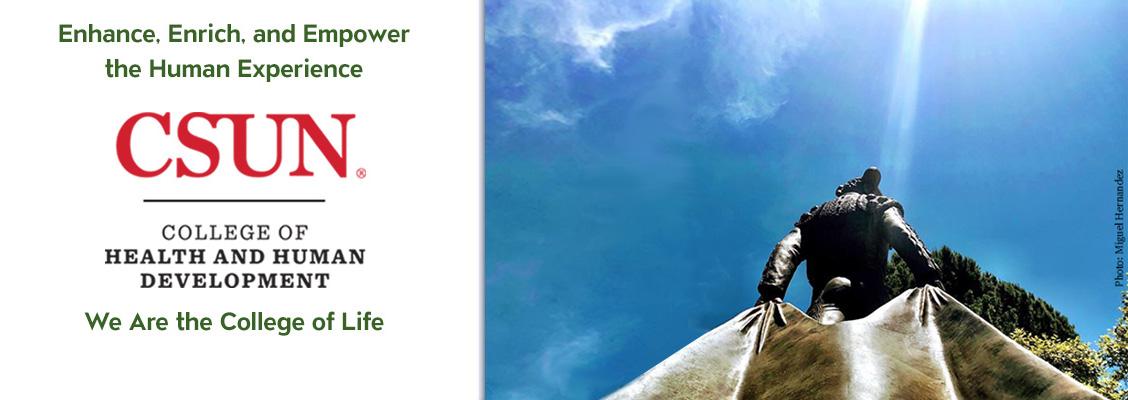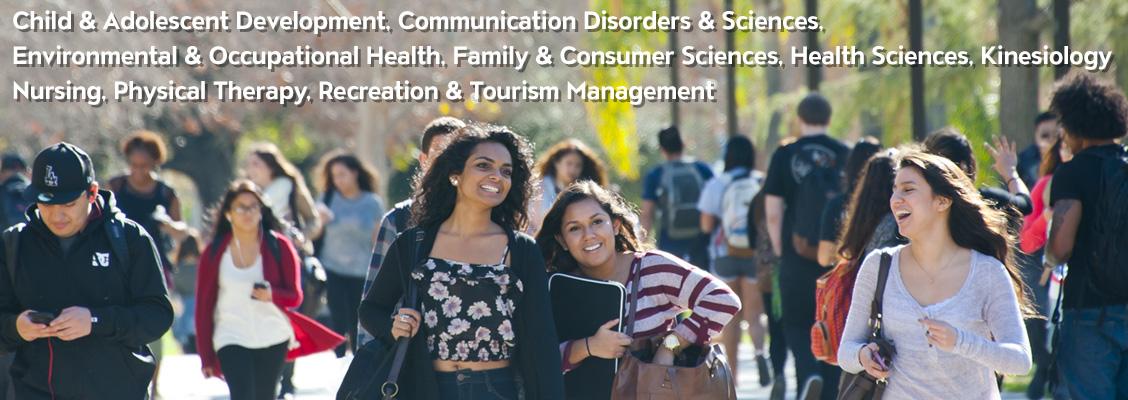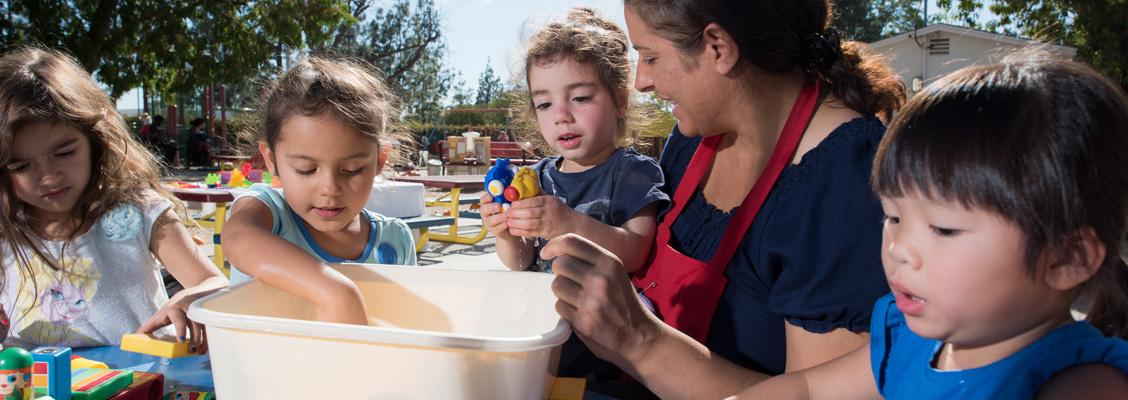Children who are fit and healthy show that the tried and true lifestyle still works—these kids generally have a healthful, balanced diet and participate in daily exercise – at least thirty minutes a day, a minimum of five days a week. But some children are inactive and don’t understand the basics of healthful eating. Where is the disconnect that leaves some children behind?
CSUN nutrition and physical education faculty know that research shows limited resources and lack of information about nutrition and fitness are key issues in addressing childhood obesity. They are also aware that while physical activity and education were once included in the standard curriculum in the public schools, over the last decade it has more often become optional as more sedentary academic exercises have taken priority.
Thanks to a $285,000 grant from UniHealth Foundation, the tide is turning. CSUN faculty and students from the Departments of Kinesiology, Family and Consumer Sciences and the Marilyn Magaram Center are working in collaboration with professionals at Northridge Hospital Medical Center, the Los Angeles Unified School District and the Parent Institute for Quality Education to bring a new program to the West San Fernando Valley. Starting in October, “Canoga Park Health Improvement Zone” will bring a team of CSUN students to teach fitness and nutrition education to children in 50 classrooms in Canoga Park and Hart Street Elementary schools.
Terry Sweeting, Professor in the Department of Kinesiology, explains, “The idea is to engage kids in physical education activities that are fun while teaching them how important it is to make fitness a part of their everyday routine.” Sweeting and her students will implement lessons in the Coordinated Approach to Child Health (CATCH) each week. CATCH is an evidence-based curriculum that classroom teachers can utilize--the program also increases the amount of time children will have physical education lessons at each school. And CATCH goes a few steps farther: it provides outreach to the children’s families through lessons and take-home projects for the children as well as classroom sessions for adults. The program also reaches out to the middle and high schools which are most likely to receive these students after they graduate from these elementary schools.
The program isn’t only focused on movement and fitness, it’s also about healthful eating. Family and Consumer Sciences Nutrition faculty Michelle Barrack-Gardner is directing the nutrition portion of the program. “Bringing our academic disciplines together for the project makes sense because fitness and nutrition go hand in hand,” she said. “The children will learn about healthy meals and snacks they can make at home. So they become good influences on their families and friends, too.”
“The enthusiasm among the CSUN students is palpable,” Sweeting said. “The way they take the curriculum and implement it using best practices makes us proud.” A strong component of the grant includes parent and teacher in-service training to promote sustainable school-wide healthy choices. “The CSUN students are excited about the Canoga Park Health Improvement Zone project. They know that what they teach these children sets the stage for future healthier lifestyles!”
Jean O'Sullivan
F2013







